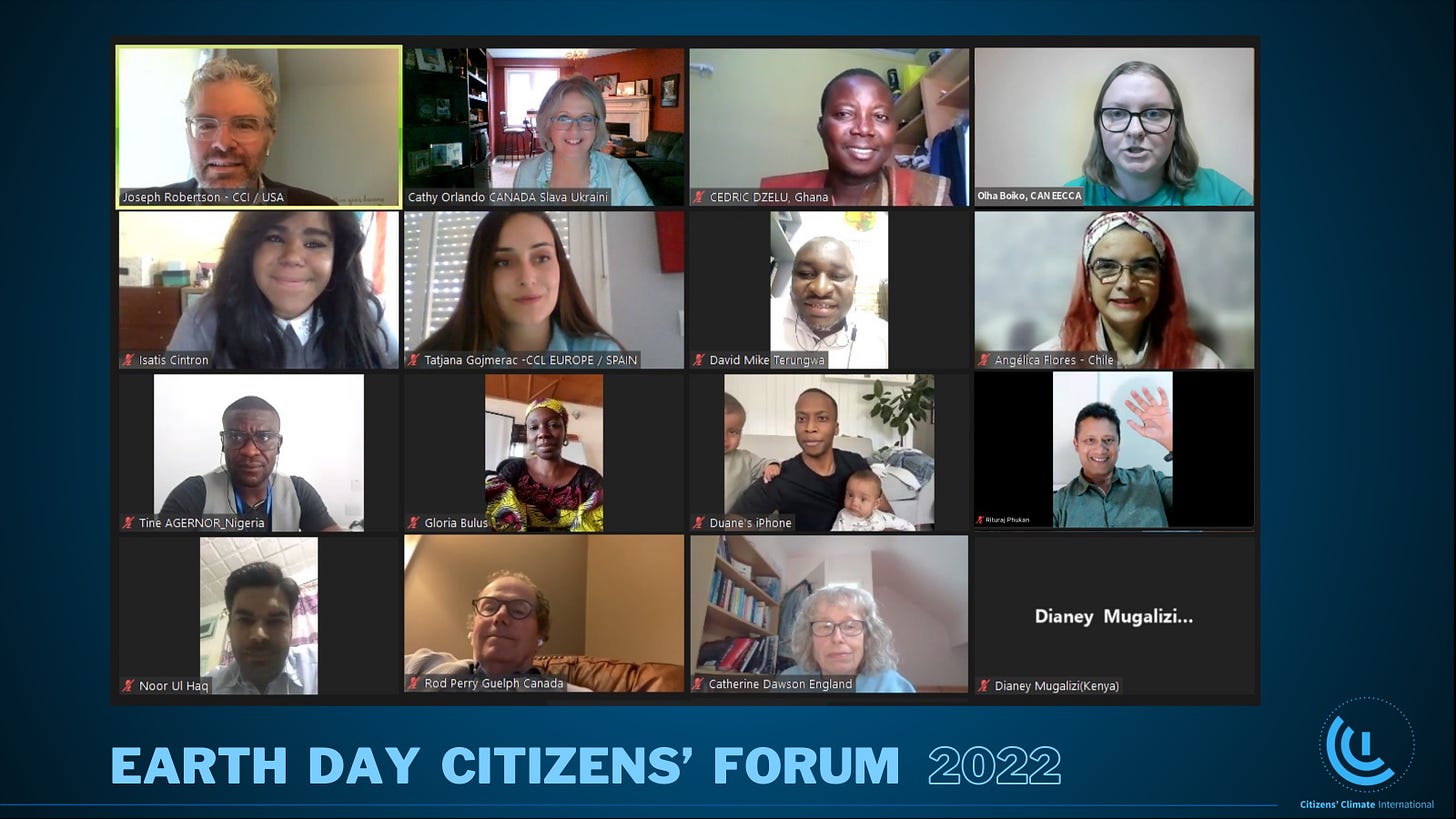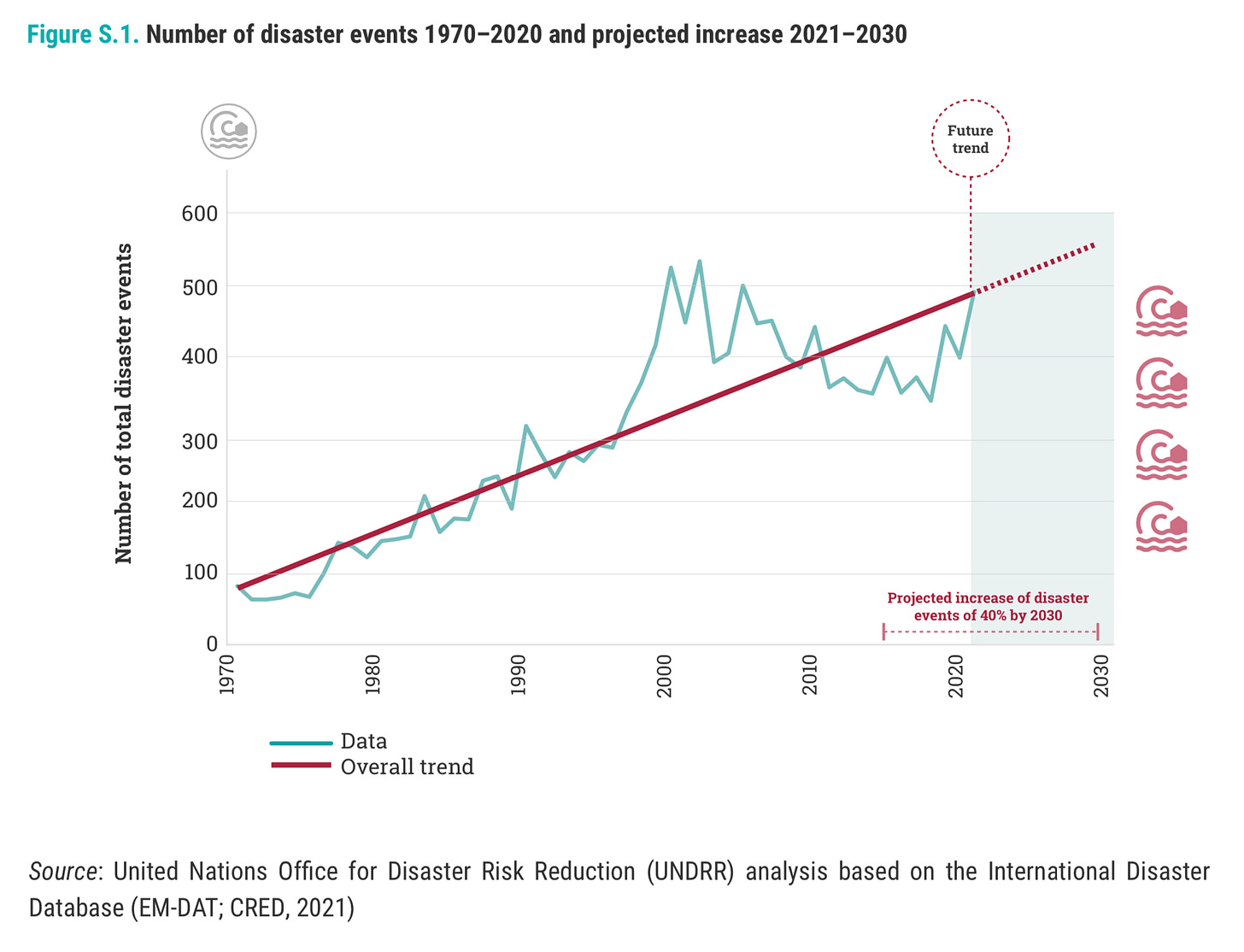A livable planet is a human right
NEWSLETTER, Apr 2022—Earth Day; Engage4Climate Toolkit for climate stakeholder meetings; Nigeria Media Roundtable; Disaster Risk Reduction is everyone’s business.
When we talk about the stability of the climate system, we are talking about the health of the biosphere—the space where life exists and thrives on Earth. The United Nations Human Rights Council has formally recognized the right to a clean, healthy, and sustainable environment. A livable planet is a human right, which means we must uphold the human rights that allow us to access evidence, inform our decisions with science, and participate in the processes that will decide how we live.
Earth Day 2022: This moment is different.
What we do now will determine how billions of people live, and how safe they are, decades from now. We are living through a crucial moment on which human history and the health of planetary systems will hinge. That is the biggest takeaway from the three IPCC climate science reports published since last August.
We marked Earth Day by convening volunteer policy advocates and CCI coordinators and allies from around the world for our second Earth Day Citizens’ Forum. Olha Boiko, coordinator of the Climate Action Network for Eastern Europe, the Caucasus, and Central Asia, reminded us: Civil society is strength.
We also highlighted the work of our citizen volunteer policy advocates, who are working to build political will for a livable climate future.
We launched an updated Engage4Climate Toolkit.
Our view, and our experience, is that everyone’s chances of success, including governments and industry, are enhanced when the design of our world is shaped by the needs and aspirations of all people.
The Toolkit provides people in any circumstance straightforward, flexible guidance on organizing meetings of stakeholders, including across different perspectives and levels of experience, to discuss and address climate challenges. It provides meeting templates, an outline of 20-year future visioning and “back-casting” exercises, and ways to report findings to decision-makers.
In addition to a new interactive interface, the Toolkit now includes a series of proposed Experiential Education Events and an expanded Resource Library, which will be updated and further expanded over time.
Citizens’ Climate Nigeria co-convened a media roundtable, leading to extensive climate reporting.
On 4th of March, 2022 Citizens Climate International Abuja Group in partnership with GIFSEP, 350 Nigeria and the Center for Environmental Studies University of Abuja organized a media roundtable on the IPCC Working Group II report on Impacts, Adaptation and Vulnerability.
A total of 14 media outlets participated in the event, including 6 television stations, 6 print publications, and 2 radio stations.
David Michael Terungwa, Africa Regional Coordinator and Field Development Lead for Citizens’ Climate International, led the discussion and was supported by Prof. S.M. Hassan (Director, Center for Environmental Studies, University of Abuja), and Yahaya Dangana CCI Group leader Lafia, Nasarawa State.
All the media houses present reported the event, some of the reports are as below:
Environmentalists Advocate Inclusive Climate Change Adaptation Measures – African Examiner
Activists to FG: Begin implementation of climate change act to safeguard livelihoods – The Cable
Disaster risk reduction is everyone’s business.
Extreme events that qualify as disasters are getting worse and multiplying. The new United Nations Global Assessment Report on Disaster Risk Reduction finds:
“Human action is creating greater and more dangerous risk, and pushing the planet towards existential and ecosystem limits. Risk reduction needs to be at the core of action to accelerate climate change action and achieve the SDGs.”
If current trends are not addressed in significant and comprehensive ways, we will be facing 560 disasters per year (1.53 disasters every day) by 2030.
Risks are also compounded by shock events and the depletion of resources in responding to worsening climate impacts. As soils are degraded, watersheds polluted or depleted, biodiversity thinned out, and climate patterns displaced, food systems are less able to achieve surpluses and less able to remain secure in times of crisis.
The Disaster Risk Reduction report recommends that we:
Measure what we value—adapting financial systems and national fiscal planning to integrate risk, and incentivizing risk reduction.
Design systems to factor in how human minds make decisions about risk.
Reconfigure governance and financial systems to work across silos and design in consultation with affected people.
Additional Resources
IPCC REPORTS
Climate Change 2022: Mitigation of Climate Change – IPCC Working Group III
The latest IPCC report has a lot to say about carbon fee and dividend – Citizens' Climate Lobby
OTHER NEWS
Stockholm+50: The health of Nature shapes our fate – Citizens' Climate International
UN Crisis Group outlines food, energy & finance actions to build peace – Resilience Intel
SEC Proposes Rules to Enhance and Standardize Climate-Related Disclosures for Investors – SEC.gov
EVENTS







